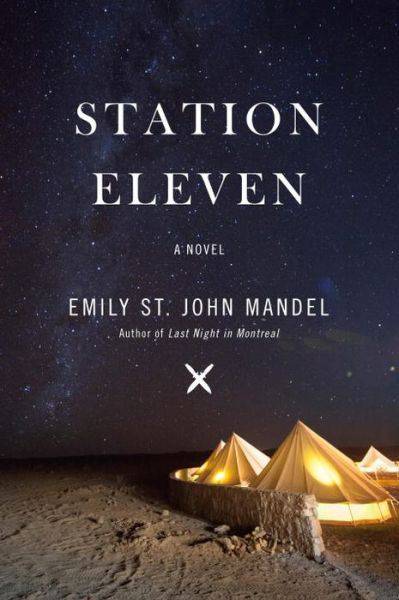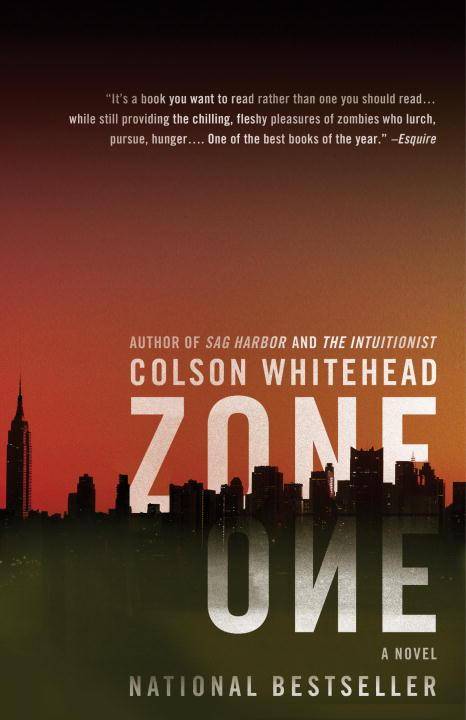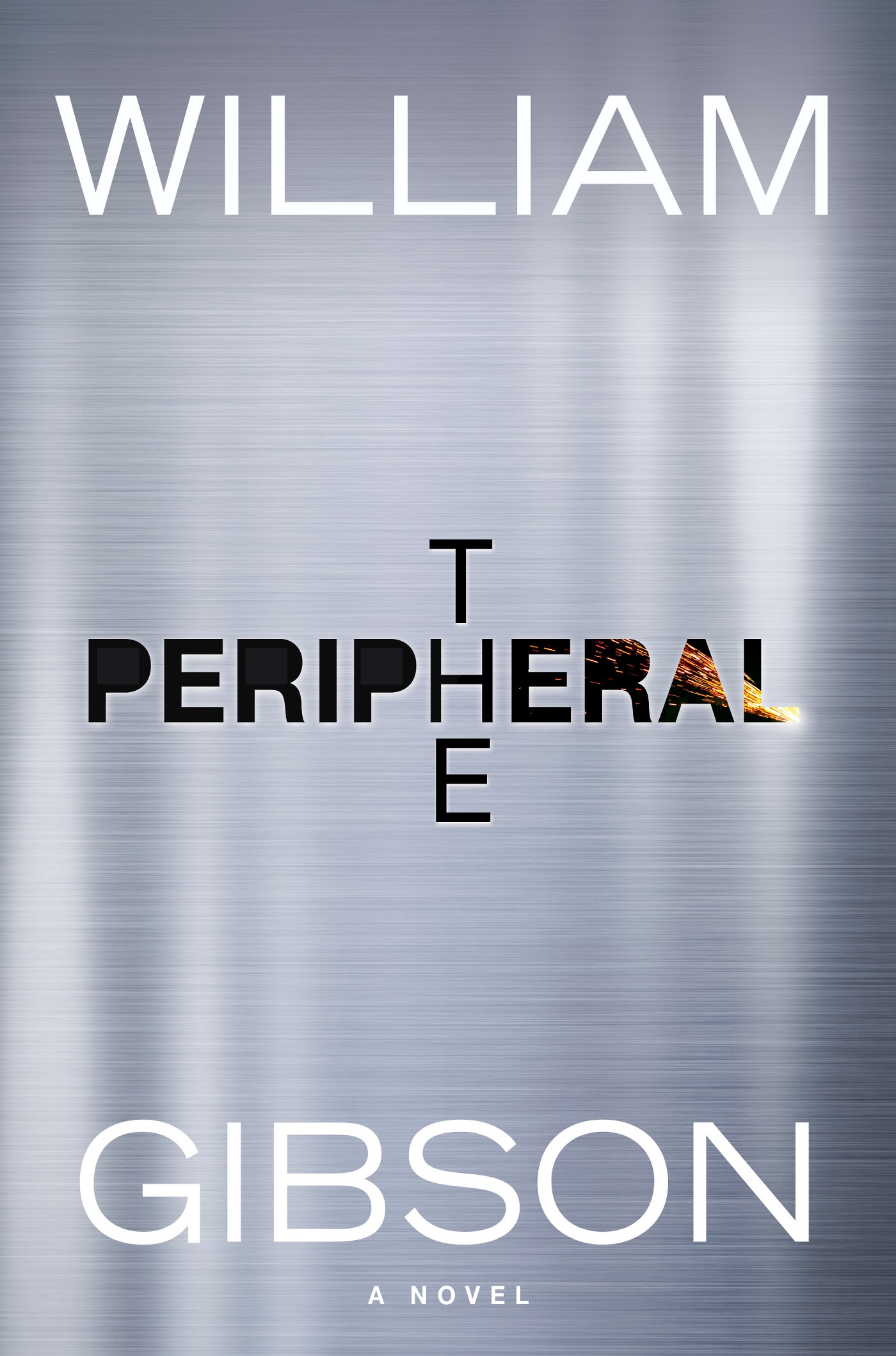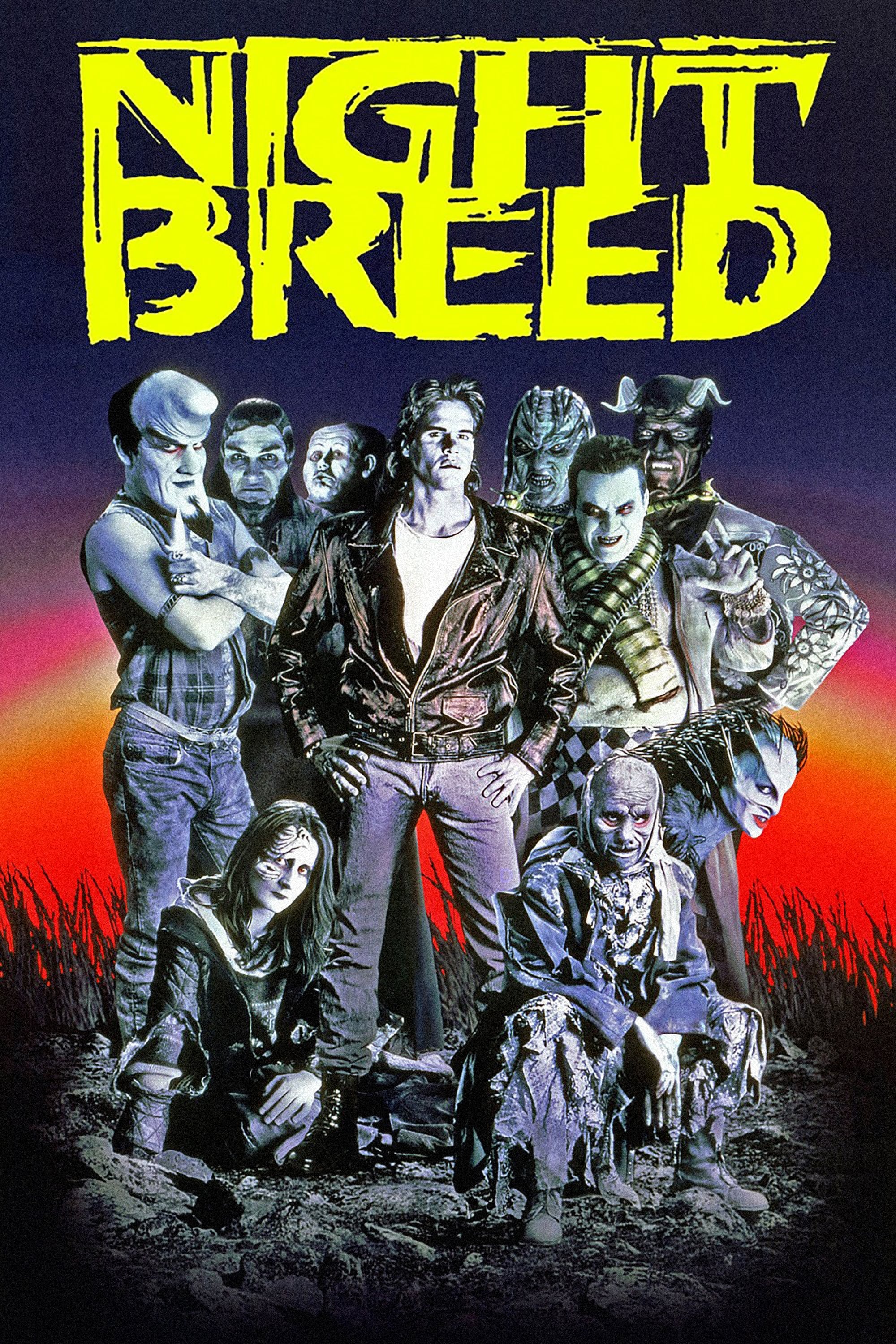The next Reader’s Advisory Roundtable meeting will be on Wednesday,
June 10th at 9am at the Trussville Library and the topic up for discussion will
be Science Fiction & Fantasy. I look
forward to seeing you there!
On Wednesday, April 15th, the fine folks over at Homewood Library hosted RART
for a discussion of Fiction of Choice and there was more than a little Stephen King love going around!
In attendance were:
Holley, Emmet O'Neal
Samuel, Five Points West
Leslie, Homewood
Richard, Central
Jon, Avondale
Leigh, North Birmingham
April, Pinson
Mary Anne, BPL
In attendance were:
Holley, Emmet O'Neal
Samuel, Five Points West
Leslie, Homewood
Richard, Central
Jon, Avondale
Leigh, North Birmingham
April, Pinson
Mary Anne, BPL
"In the introduction to his first collection of short
fiction since Everything's Eventual (2002), King credits editing Best American Short Stories (2007) with reigniting his interest in the short
form and inducing some of this volume's contents. Most of these 13 tales show
him at the top of his game, molding the themes and set pieces of horror and
suspense fiction into richly nuanced blends of fantasy and psychological
realism. "The Things They Left Behind," a powerful study of survivor
guilt, is one of several supernatural disaster stories that evoke the horrors
of 9/11. Like the crime thrillers "The Gingerbread Girl" and "A
Very Tight Place," both of which feature protagonists struggling with
apparently insuperable threats to life, it is laced with moving ruminations on
mortality that King attributes to his own well-publicized near-death
experience. Even the smattering of genre-oriented works shows King trying out
provocative new vehicles for his trademark thrills, notably "N.," a
creepy character study of an obsessive-compulsive that subtly blossoms into a
tale of cosmic terror in the tradition of Arthur Machen and H.P. Lovecraft.
Culled almost entirely from leading mainstream periodicals, these stories are a
testament to the literary merits of the well-told macabre tale."Publishers
Weekly (Starred Review) (Copyright Reed Business Information, Inc.)
"In bestseller King's well-crafted tale of possession
and redemption, Edgar Freemantle, a successful Minnesota contractor, barely
survives after the Dodge Ram he's driving collides with a 12-story crane on a
job site. While Freemantle suffers the loss of an arm and a fractured skull,
among other serious injuries, he makes impressive gains in rehabilitation.
Personality changes that include uncontrollable rages, however, hasten the end
of his 20-year-plus marriage. On his psychiatrist's advice, Freemantle decides
to start anew on a remote island in the Florida Keys. To his astonishment, he
becomes consumed with making art — first pencil sketches, then paintings — that
soon earns him a devoted following. Freemantle's artwork has the power both to
destroy life and to cure ailments, but soon the Lovecraftian menace that haunts
Duma Key begins to assert itself and torment those dear to him. The transition
from the initial psychological suspense to the supernatural may disappoint
some, but even those few who haven't read King (Lisey's Story) should
appreciate his ability to create fully realized characters and conjure horrors
that are purely manmade."Publishers Weekly (Copyright Reed Business
Information, Inc.)
"[G]oes down like a shot of moonshine, hot and clean, much
like Cujo....While the book's relative brevity and simplicity does lend
comparison to earlier King...the author's stylistic maturity manifests in his
sophisticated handling....This novel isn't major King, but it's nearly flawless
and one terrific entertainment." Publishers Weekly
"[O]ne of the best time-travel stories since H. G.
Wells. King has captured something wonderful. Could it be the bottomlessness of
reality? The closer you get to history, the more mysterious it becomes. He has
written a deeply romantic and pessimistic book. It's romantic about the real
possibility of love, and pessimistic about everything else." Errol
Morris, The New York Times Book Review
GENERAL DISCUSSION:
"Availing himself of that durable literary device, time
travel, Fry entangles Michael Young, history student at Cambridge University,
in a scheme to prevent the birth of Adolf Hitler....[Y]es, this is a funny
novel, albeit an uneasily amusing one....A simultaneously zany and serious yarn
spinner, Fry creates here a bizarre but skillfully controlled alternative
world, with the virtuoso pacing and tension that attract readers." Booklist
Publisher Comments:
"Sleep. And when you awake everything you know of the
twentieth century will be gone from your mind. Tonight is January 21, 1882.
There are no such things as automobiles, no planes, computers, television.
'Nuclear' appears in no dictionary. You have never heard the name Richard
Nixon."
Did illustrator Si Morley really step out of his
twentieth-century apartment one night — right into the winter of 1882? The U.S.
Government believed it, especially when Si returned with a portfolio of
brand-new sketches and tintype photos of a world that no longer existed — or
did it?
From Publishers Weekly
Australian author Moriarty, in her fifth novel (after The
Hypnotist's Love Story), puts three women in an impossible situation and
doesn't cut them any slack. Cecilia Fitzpatrick lives to be perfect: a perfect
marriage, three perfect daughters, and a perfectly organized life. Then she
finds a letter from her husband, John-Paul, to be opened only in the event of
his death. She opens it anyway, and everything she believed is thrown into
doubt. Meanwhile, Tess O'Leary's husband, Will, and her cousin and best friend,
Felicity, confess they've fallen in love, so Tess takes her young son, Liam,
and goes to Sydney to live with her mother. There she meets up with an old
boyfriend, Connor Whitby, while enrolling Liam in St. Angela's Primary School,
where Cecilia is the star mother. Rachel Crowley, the school secretary,
believes that Connor, St. Angela's PE teacher, is the man who, nearly three
decades before, got away with murdering her daughter—a daughter for whom she is
still grieving. Simultaneously a page-turner and a book one has to put down
occasionally to think about and absorb, Moriarty's novel challenges the reader
as well as her characters, but in the best possible way. Agent: Faye Bender,
Faye Bender Literary Agency.
Amazon.com Review
An Amazon
Best Book of the Month, July 2014: What is it about Liane Moriarty’s
books that makes them so irresistible? They’re just classic “domestic” novels
about marriage, motherhood, and modern upper-middle-class family life, after
all. And despite the fact that Big Little Lies is Moriarty’s sixth
adult novel (and it comes decades after the grandmother of this kind of thing, Bridget Jones’ Diary), it is remarkably new and fresh and winning. Set in an Australian
suburb, Big Little Lies focuses on three women, all of whom have
children at the same preschool. One is a great beauty married to a fabulously
rich businessman; they have a “perfect” set of twins. One is the can-do mom who
can put together a mean preschool art project but can’t prevent her teenage
daughter from preferring her divorced dad. The third is a withdrawn, single
mother who doesn’t quite fit in. Right from the start--thanks to a modern
“Greek chorus” that narrates the action--we know that someone is going to end
up dead. The questions are who and how. Miraculously, Moriarty keeps this high
concept plot aloft, largely because she infuses it with such wit and heart. She
also knows not to overplay the message she’s sending: that we all tell lies--to
each other and, more importantly, to ourselves. --Sara Nelson
From Publishers Weekly
Starred Review. Moriarty (Three Wishes) presents a
stunner several shades darker than typical chick lit, about a family and the
outsider who inherits a house on Scribbly Gum, their (fictional) Australian
island and a popular tourist destination. Sophie Honeywell hasn't heard from
ex-boyfriend Thomas Gordon since she broke his heart three years ago. He's
since married and fathered a child, while Sophie remains single, pining for a
baby. When Thomas's Aunt Connie leaves her house on Scribbly Gum Island to
Sophie, the family is largely nonplussed—but then, they're used to mysteries.
The famous 1932 discovery of baby Enigma by Connie and her sister, Rose
Doughty, led to the successful "Munro Baby Mystery" tour that kept
the sisters afloat for years. Among the large, eccentric family, Sophie starts
a new life, befriending Thomas's cousin Grace, who is suffering through
postpartum depression; finding a dangerous mutual attraction with Grace's
husband, Callum; and dealing with bitter, intense Veronika, Thomas's sister,
who covets Connie's house. Moriarty expertly handles a large cast and their
relationships, keeping everyone guessing as the true story of baby Enigma—and
its role in Sophie's strange inheritance—is slowly revealed. Moriarty's prose
turns from funny through poignant to frightening in an artful snap. Copyright © Reed Business Information, a division of Reed Elsevier Inc. All
rights reserved.
“A witty modern love story in the age of cohabitation,
blended families, and second chances, this is a compassionate, absorbing tale.
Moriarty has crafted an incredibly likable heroine in Ellen, the hypnotherapist
who can solve her clients’ problems but can’t seem to keep her own life from
spiraling into soap opera. Readers who enjoy Jennifer Close and Marian Keyes
will adore Moriarty’s wit and warmth.”—Booklist (starred review)
From Booklist
*Starred Review* Benjamin, author of the highly acclaimed
Alice I Have Been (2010) and The Autobiography of Mrs. Tom Thumb (2011),
delivers another stellar historical novel based on the experiences of an
extraordinary woman. In this outing, she spotlights Anne Morrow Lindbergh, wife
of wildly famous Charles Lindbergh and pioneering aviatrix and accomplished
author in her own right. Though their courtship is the stuff of every girl’s
romantic fantasy, time and reality combine to reveal a much different story.
Plagued by tragedy and often stifled by her domineering husband, she eventually
manages to carve out a quasi-independent life and career for herself. Fictional
biography at its finest; serious readers may want to pair this with the
recently published Against Wind and Tide, the sixth and final volume of Anne
Morrow Lindbergh’s copious letters and journal entries. --Margaret Flanagan
GENERAL DISCUSSION:
“Grabs you from the opening pages, providing hints of the
absorbing and entertaining story to come . . . a delightful cavalcade of late
nineteenth-century Americana.”—Library Journal
From Publishers Weekly
Starred Review. Benjamin draws on one of the most enduring
relationships in children's literature in her excellent debut, spinning out the
heartbreaking story of Alice from Alice's Adventures in Wonderland. Her
research into the lives of Charles Dodgson (aka Lewis Carroll) and the family
of Alice Liddell is apparent as she takes circumstances shrouded in mystery and
colors in the spaces to reveal a vibrant and passionate Alice. Born into a
Victorian family of privilege, free-spirited Alice catches the attention of
family friend Dodgson and serves as the muse for both his photography and
writing. Their bond, however, is misunderstood by Alice's family, and though
she is forced to sever their friendship, she is forever haunted by their
connection as her life becomes something of a chain of heartbreaks. As an
adult, Alice tries to escape her past, but it is only when she finally embraces
it that she truly finds the happiness that eluded her. Focusing on three eras
in Alice's life, Benjamin offers a finely wrought portrait of Alice that
seamlessly blends fact with fiction. This is book club gold. Copyright © Reed Business Information, a division of Reed Elsevier Inc. All
rights reserved.

A Touch of Stardust by Kate Alcott (Leslie, Homewood)
"Readers of Nancy Horan's Loving Frank and
other biographical fiction will love this well-written, thoroughly researched look at
Hollywood's glamorous and not-so-glamorous past."
— Library Journal starred review
— Library Journal starred review

Rhett Butler’s People by Donald McCaig (Leslie, Homewood)
From Publishers Weekly
Was it strictly necessary to our understanding of Gone With
the Wind's dashing hero to flesh out his backstory, replay famous GWTW scenes
from his perspective, and crank the plot past the original's astringent
denouement? Perhaps not, but it's still a fun ride. In this authorized
reimagining, Rhett, disowned son of a cruel South Carolina planter, is still a
jauntily worldwise charmer, roguish but kind; Scarlett is still feisty,
manipulative and neurotic; and the air of besieged decorum is slightly racier.
(Rhett: "My dear, you have jam at the corner of your mouth."
Scarlett: "Lick it off.") But it says much about the author's sure
feel for Margaret Mitchell's magnetic protagonists that they still beguile us.
McCaig (Jacob's Ladder) broadens the canvas, giving Rhett new dueling and
blockade-running adventures and adding intriguing characters like Confederate
cavalier-turned-Klansman Andrew Ravanel, a rancid version of Ashley Wilkes who
romances Rhett's sister Rosemary. He paints a richer, darker panorama of a Civil
War-era South where poor whites seethe with resentment and slavery and racism
are brutal facts of life that an instinctive gentleman like Rhett can work
around but not openly challenge. McCaig thus imparts a Faulknerian tone to the
saga that sharpens Mitchell's critique of Southern nostalgia without losing the
epic sweep and romantic pathos. The result is an engrossing update of GWTW that
fans of the original will definitely give a damn about.
Copyright © Reed Business Information, a division of Reed Elsevier Inc. All rights reserved.
Copyright © Reed Business Information, a division of Reed Elsevier Inc. All rights reserved.

Ruth’s Journey by Donald McCaig (Leslie, Homewood)
“Exquisitely imagined, deeply researched, Donald McCaig's
Ruth's Journey brings to the foreground the most enigmatic and fascinating
figure in Gone With the Wind. This is a brave work of literary empathy by a
writer at the height of his powers, who demonstrates a magisterial
understanding of the period, its clashing cultures and its heartbreaking
crises.” (Geraldine Brooks, author of March)
GENERAL DISCUSSION:
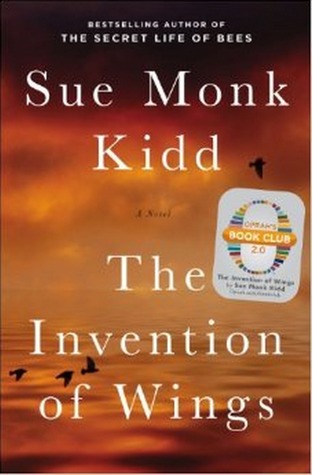
The Invention of Wings by Sue Monk Kidd
From Booklist
*Starred Review* Inspired by the true story of
early-nineteenth-century abolitionist and suffragist Sarah Grimké, Kidd paints
a moving portrait of two women inextricably linked by the horrors of slavery.
Sarah, daughter of a wealthy South Carolina plantation owner, exhibits an
independent spirit and strong belief in the equality of all. Thwarted from her
dreams of becoming a lawyer, she struggles throughout life to find an outlet
for her convictions. Handful, a slave in the Grimké household, displays a sharp
intellect and brave, rebellious disposition. She maintains a compliant
exterior, while planning for a brighter future. Told in first person, the
chapters alternate between the two main characters’ perspectives, as we follow
their unlikely friendship (characterized by both respect and resentment) from
childhood to middle age. While their pain and struggle cannot be equated, both
women strive to be set free—Sarah from the bonds of patriarchy and Southern
bigotry, and Handful from the inhuman bonds of slavery. Kidd is a master
storyteller, and, with smooth and graceful prose, she immerses the reader in
the lives of these fascinating women as they navigate religion, family drama,
slave revolts, and the abolitionist movement. HIGH-DEMAND BACKSTORY: Beginning
with her phenomenally successful debut, The Secret Life of Bees (2002), Kidd’s
novels have found an intense readership among library patrons, who will be
eager to get their hands on her latest one. --Kerri Price

Someone Killed His Boyfriend by David Stukas (Samuel, Five
Points West)
From Booklist
Wealthy, handsome, butch Michael; his plainer, poorer,
rather nelly friend, Robert, an underpaid copywriter for feminine hygiene
products; and Robert's friend, the towering lesbian Monette, are a trio of detectives
in this campy sleuther. Michael, a slut to the manner born, gives his all to
marry breathtakingly gorgeous Max, a southerner with money. When the wedding
day arrives, however, Michael is stood up at the altar, humiliated in front of
1,500 close friends, and minus an original Matisse. With Robert in tow, Michael
tracks Max to that summertime gay mecca, Provincetown, only to find him dead.
Since Michael is the prime suspect and clues indicate the murderer is a Bette
Davis impersonator, Michael and Robert take lessons from drag legend Beyonda
Sea and land jobs in a drag revue to pursue the fiend. Sure, the plot is
outlandish, and the sleuths are improbable. But this breezy page-turner is
laugh-out-loud entertainment. Irresistible. Whitney Scott
Copyright © American Library Association. All rights reserved
Copyright © American Library Association. All rights reserved

Something Like Summer by Jay Bell (Samuel, Five Points West)
One of Amazon's selections for Best Gay Books of 2011, a Lambda
Literary Awards finalist, and soon to be a movie from the makers of Judas
Kiss. Praise from Queer Magazine Online: "Something Like Summer not only
has lots of passion, humor, angst, and twists and turns, it also takes an in
depth look at how the choices we make in life affect not only ourselves, but
everyone around us." Five stars from ALPHA reader: "Jay Bell has written one
of the most heart-felt and sincere M/M romances I have ever encountered. This
is a love story that spans twelve years - a story all about getting a second
chance with 'the one that got away'."
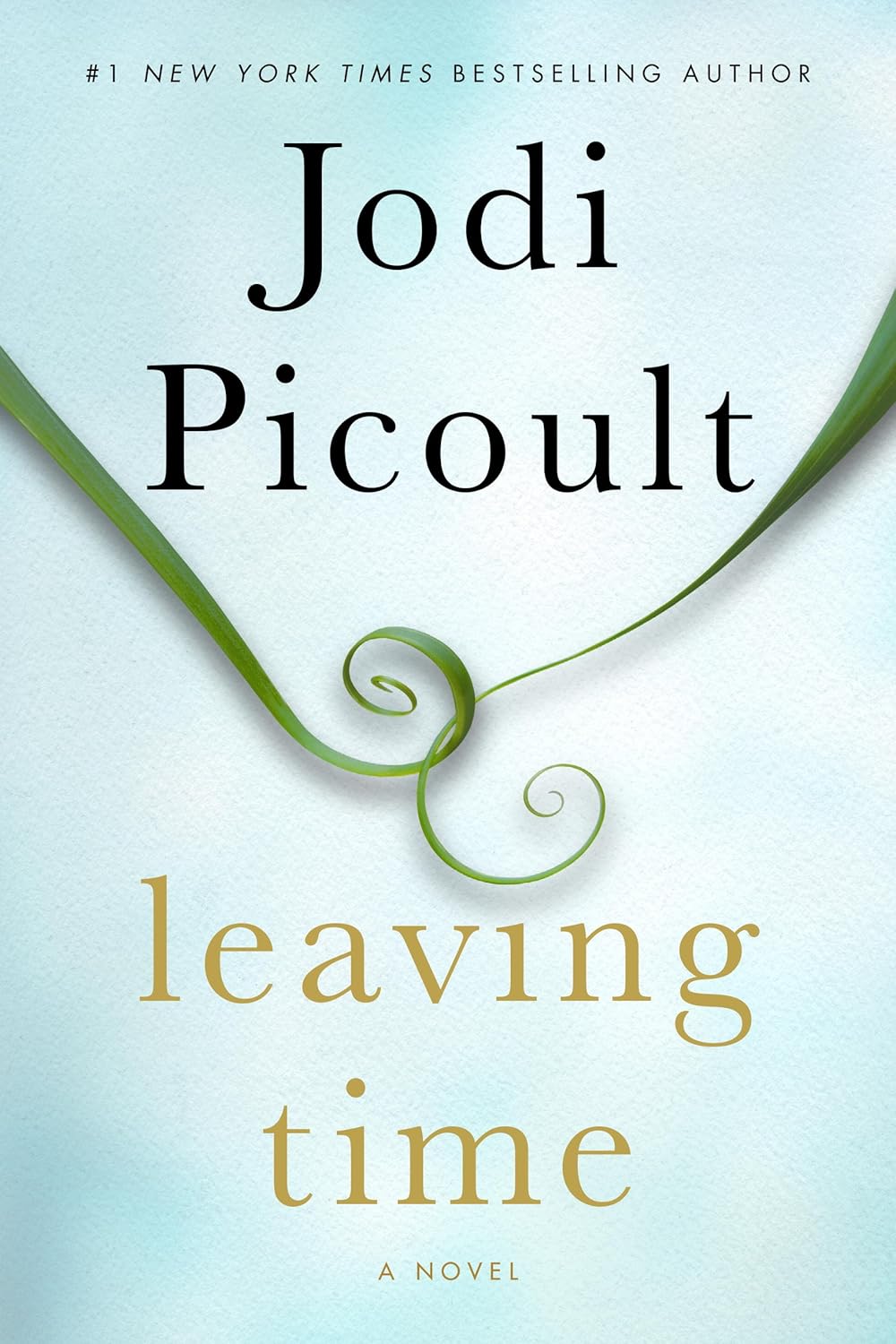
Leaving Time by Jodi Picoult (April, Pinson)
An Amazon
Best Book of the Month, October 2014: Jodi Picoult’s Leaving Time weaves
elephant behavior into a search for a missing mother. The connection isn't as
odd as it might sound at first, and Picoult has written another page-turning
novel, even as it focuses on motherhood, loss, and grief. Teenager Jenna
Metcalf was just three years old when her mother disappeared from an elephant
sanctuary. Ten years later, she takes up the search for her mother, Alice, by
studying Alice’s decade-old journals on grieving elephants. The research itself
is fascinating, the hints about Alice’s disappearance are compelling; but Jenna
cannot find her mother on her own. By enlisting the help of a formerly
famous—now infamous—psychic, as well as a down-and-out private detective whose
career went south during the botched investigation of Alice's disappearance,
Jenna forms a sort of new family to help her in her quest. As the facts begin
to come together—described in alternating chapters by Jenna, the psychic, the
private detective, and Alice’s journals—it all heads toward a thrilling
conclusion. And, yes, there is a big twist at the end. – Chris Schluep
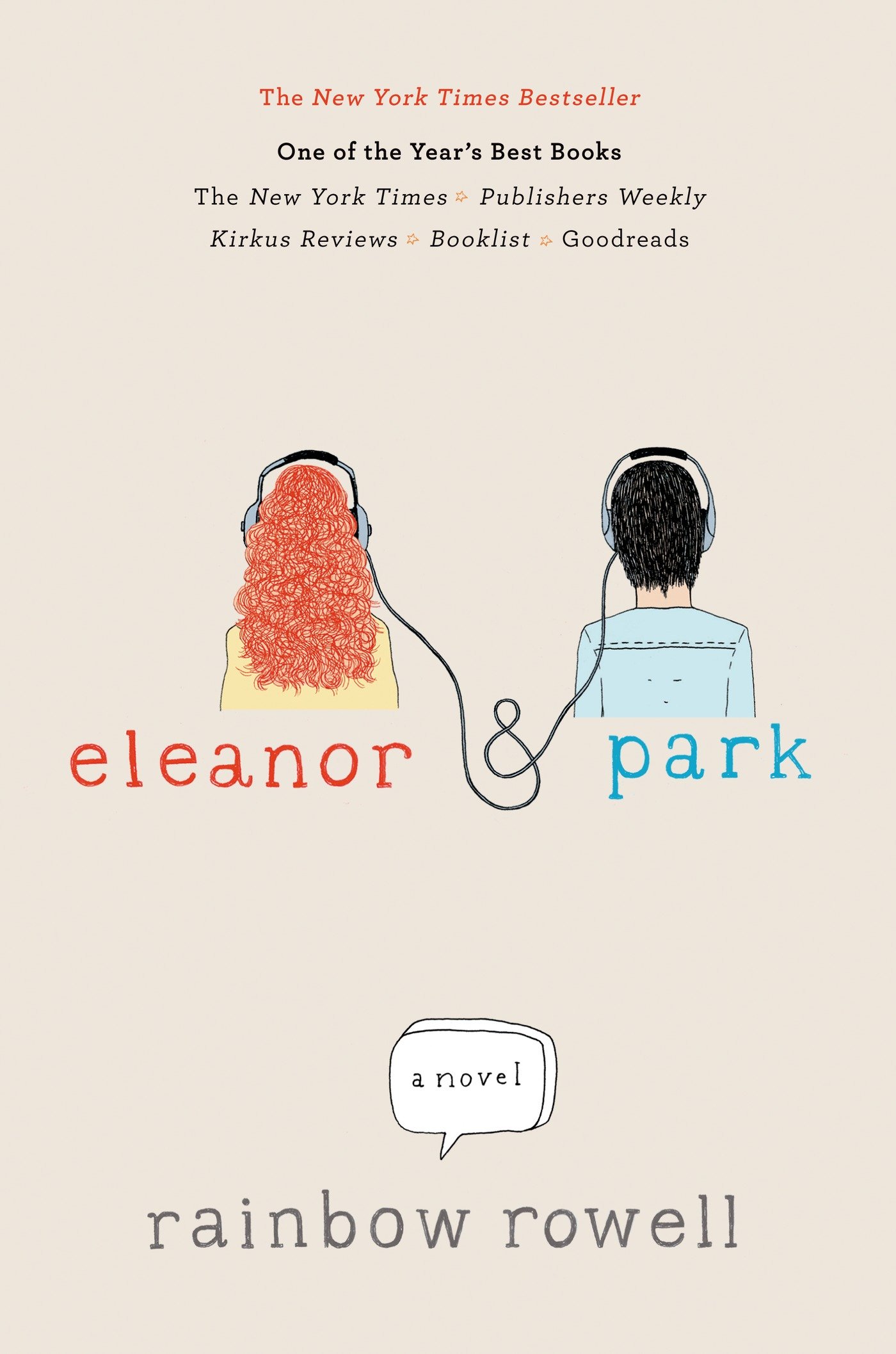
Eleanor & Park by Rainbow Rowell (April, Pinson)
From School Library Journal
Gr 9 Up - Eleanor, 15, is the new girl at school and bullied
because she's overweight and dresses in a flamboyant manner. Park is a
half-Korean boy who has lived in Omaha, Nebraska, all his life but still feels
like an outsider. This is a story of first love, which very slowly builds from
the first day Eleanor sits next to Park on the school bus. First they ignore
each other, and then they slowly become friends through their love of comic
books and 1980s alternative music. Park is the only good thing in Eleanor's
life. Her home life is a miserable exercise in trying to stay out of her
abusive stepfather's way, and finding new ways to wear the same clothes
repeatedly since there is no money for anything extra. Park adores everything
about Eleanor, and she finds refuge at his house after school with his
understanding parents. Things finally explode at Eleanor's house and Eleanor
and Park's relationship is truly tested. The narrative points of view alternate
between Eleanor and Park, adding dimension to Rowell's story (St. Martin's
Griffin, 2013), and narrators Rebecca Lowman and Sunil Malhtra competently
voice the pair. Give this to teenage girls who crave romance.-Julie Paladino,
East Chapel Hill High School, NCα(c) Copyright 2013. Library Journals LLC, a
wholly owned subsidiary of Media Source, Inc. No redistribution permitted.

Landline by Rainbow Rowell (April, Pinson)
An Amazon
Best Book of the Month, July 2014: In Landline, Rainbow Rowell
once again shares her insightful, funny perspective on love and relationships,
this time delving into a marriage floundering in the wake of kids, careers, and
the daily grind. Georgie and Neal have been married for fifteen years and have
two young girls who Neal cares for while Georgie works as a sitcom writer. When
Georgie skips the family trip to her in-laws in Omaha for Christmas and the
rest of her family goes without her, she realizes that maybe her marriage is
going too. When a line to the past (literally) gives Georgie a chance to
re-live an earlier pivotal moment in their relationship, she sees it as an
opportunity to figure out if she and Neal should have been together in the
first place. Landline is a deeply resonant story about being willing
to go all in--at the start or after being together for many years--for the kind
of love that makes “everything else just scenery.” --Seira Wilson
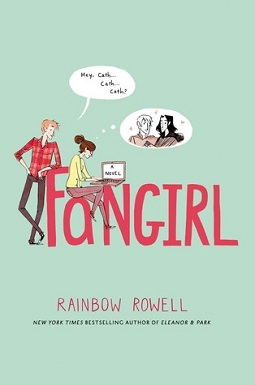
Fangirl by Rainbow Rowell (April, Pinson)
Amazon.com Review
Best Books of the Month: Teen & Young Adult, September
2013: At first glance Rainbow Rowell’s Fangirl has a lot in common
with Eleanor & Park: idiosyncratic girl with troubled family meets good,
normal boy and falls in love for the first time. But this is why Rowell is so
talented--from the same basic ingredients she can create something new and
special. In Fangirl, quirky introvert, Cath, is safe within the immensely
popular Simon Snow (think Harry Potter) fan-fiction blog she
writes with her twin sister, but college turns her life upside down, leaving
her feeling like an awkward outsider. When she writes, Cath knows exactly what
her characters should say to each other, but when it comes to forging real-life
friendships, much less a romance, she hasn’t a clue. An immensely satisfying
coming-of-age novel, Fangirl deftly captures the experience of discovering
your true voice and clumsy, vulnerable, remarkable, first love. --Seira
Wilson

GENERAL DISCUSSION:
Fans of audiobooks may be interested in Rebecca Lowman. From Audiofile Magazine: “In
five years of narration, Lowman has performed single, dual, and multiple
narrations. By nature a collaborator, she feels multiple narrators can give
listeners different perspectives. She doesn't meet her fellow actors and seldom
records with them. "But when it's working right, the narration sounds so
seamless that the listener feels the actors are sitting in the same room
together--that there's some connection between them. That magic is created by
the book."
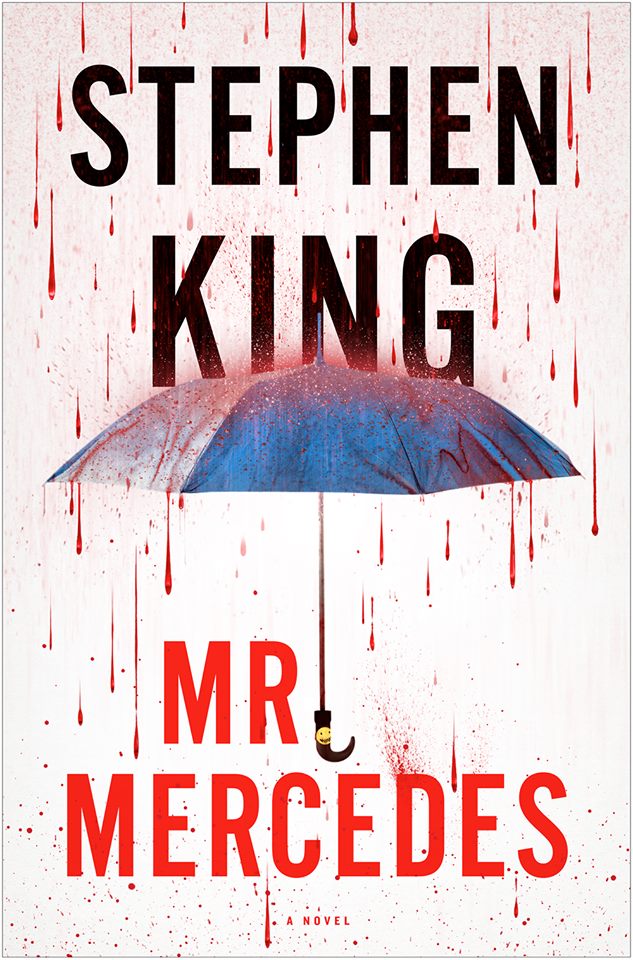
Mr. Mercedes by Stephen King (April, Pinson)
From Booklist
King’s interest in crime fiction was evident from his work
for the Hard Case Crime imprint—The Colorado Kid (2005) and Joyland (2013)—but
this is the most straight-up mystery-thriller of his career. Retired Detective
Bill Hodges is overweight, directionless, and toying with the idea of ending it
all when he receives a jeering letter from the Mercedes Killer, who ran down 23
people with a stolen car but evaded Hodges’ capture. With the help of a
17-year-old neighbor and one victim’s sister (who, in proper gumshoe style,
Hodges quickly beds), Hodges begins to play cat-and-mouse with the killer
through a chat site called Under Debbie’s Blue Umbrella. Hodges’ POV alternates
with that of the troubled murderer, a Norman Bates–like ice-cream-truck driver
named Brady Hartfield. Both Hodges and Hartfield make mistakes, big ones,
leaving this a compelling, small-scale slugfest that plays out in cheery
suburban settings. This exists outside of the usual Kingverse (Pennywise the
Clown is referred to as fictive); add that to the atypical present-tense prose,
and this feels pretty darn fresh. Big, smashing climax, too. HIGH-DEMAND
BACKSTORY: No need to rev the engine here; this baby will rocket itself out of
libraries with a loud squeal of the tires. --Daniel Kraus
GENERAL DISCUSSION ON GREAT AUDIOBOOKS:

Jack Torrance’s new job at the Overlook Hotel is the perfect
chance for a fresh start. As the off-season caretaker at the atmospheric old
hotel, he’ll have plenty of time to spend reconnecting with his family and
working on his writing. But as the harsh winter weather sets in, the idyllic
location feels ever more remote . . . and more sinister. And the only one to
notice the strange and terrible forces gathering around the Overlook is Danny
Torrance, a uniquely gifted five-year-old.
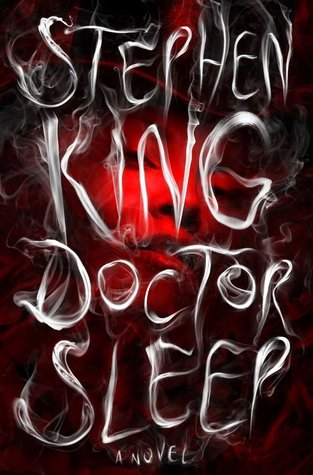
From Publishers Weekly
Iconic horror author King (Joyland) picks up the narrative
threads of The Shining many years on. Young psychic Danny Torrance has become a
middle-aged alcoholic (he now goes by Dan), bearing his powers and his guilt as
equal burdens. A lucky break gets him a job in a hospice in a small New England
town. Using his abilities to ease the passing of the terminally ill, he remains
blissfully unaware of the actions of the True Knot, a caravan of human
parasites crisscrossing the map in their RVs as they search for children with
the shining (psychic abilities of the kind that Dan possesses), upon whom they
feed. When a girl named Abra Stone is born with powers that dwarf Dan's,
she attracts the attention of the True Knot's leader—the predatory Rose
the Hat. Dan is forced to help Abra confront the Knot, and face his own
lingering demons. Less terrifying than its famous predecessor, perhaps because
of the author's obvious affection for even the most repellant characters,
King's latest is still a gripping, taut read that provides a satisfying
conclusion to Danny Torrance's story. Agent: Chuck Verrill, Darhansoff
& Verrill Literary Agents.

The Stand by Stephen King
From Publishers Weekly
In its 1978 incarnation, The Stand was a healthy, hefty
823-pager. Now, King and Doubleday are republishing The Stand in the gigantic
version in which, according to King, it was originally written. Not true . The
same excellent tale of the walking dude, the chemical warfare weapon called
superflu and the confrontation between its survivors has been updated to 1990,
so references to Teenage Mutant Ninja Turtles, the Reagan years, Roger Rabbit
and AIDS are unnecessarily forced into the mouths of King's late-'70s
characters. That said, the extra 400 or so pages of subplots, character
development, conversation, interior dialogue, spiritual soul-searching, blood,
bone and gristle make King's best novel better still. A new beginning adds
verisimilitude to an already frighteningly believable story, while a new ending
opens up possibilities for a sequel. Sheer size makes an Everest of the whole
deal. Copyright 1990 Reed Business
Information, Inc.
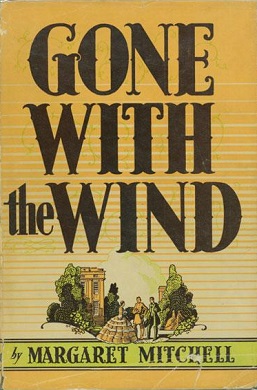
Gone With the Wind by Margaret Mitchell
"Gone with the Wind is one of those rare
books that we never forget. We read it when we're young and fall in love with
the characters, then we watch the film and read the book again and watch the
film again and never get tired of revisiting an era that is the most important
in our history. Rhett and Scarlet and Melanie and Ashley and Big Sam and Mammy
and Archie the convict are characters who always remain with us, in the same
way that Twain's characters do. No one ever forgets the scene when Scarlet wanders
among the wounded in the Atlanta train yard; no one ever forgets the moment
Melanie and Scarlet drag the body of the dead Federal soldier down the
staircase, a step at a time. Gone with the Wind is an epic story.
Anyone who has not read it has missed one of the greatest literary experiences
a reader can have." -- James Lee Burke, bestselling author of The Tin Roof Blowdown

The Little Stranger by Sarah Waters
From Publishers Weekly
Starred Review. Waters (The Night Watch) reflects on the
collapse of the British class system after WWII in a stunning haunted house
tale whose ghosts are as horrifying as any in Shirley Jackson's The Haunting of Hill House. Doctor Faraday, a lonely bachelor, first visited
Hundreds Hall, where his mother once worked as a parlor maid, at age 10 in
1919. When Faraday returns 30 years later to treat a servant, he becomes
obsessed with Hundreds's elegant owner, Mrs. Ayres; her 24-year-old son,
Roderick, an RAF airman wounded during the war who now oversees the family
farm; and her slightly older daughter, Caroline, considered a natural spinster
by the locals, for whom the doctor develops a particular fondness. Supernatural
trouble kicks in after Caroline's mild-mannered black Lab, Gyp, attacks a
visiting child. A damaging fire, a suicide and worse follow. Faraday, one of
literature's more unreliable narrators, carries the reader swiftly along to the
devastating conclusion.
Copyright © Reed Business Information, a division of Reed Elsevier Inc. All rights reserved.
Copyright © Reed Business Information, a division of Reed Elsevier Inc. All rights reserved.

Affinity by Sarah Waters
From The New Yorker
Her first, Tipping the Velvet, was good; her second is
just terrific. Moody, haunting, and haunted (it's about love among Victorian
spiritualists), Affinity is two parts Wilkie Collins, with whose The Woman in White it shares an obsession with prisons, madness,
journal-keeping, and elaborate, carefully engineered deceits; and just a dash
of Jeanette Winterson for up-to-the-minute lesbian-historical-fiction flavor.
("He, she--you ought to know that in the spheres there are no differences
like that.")
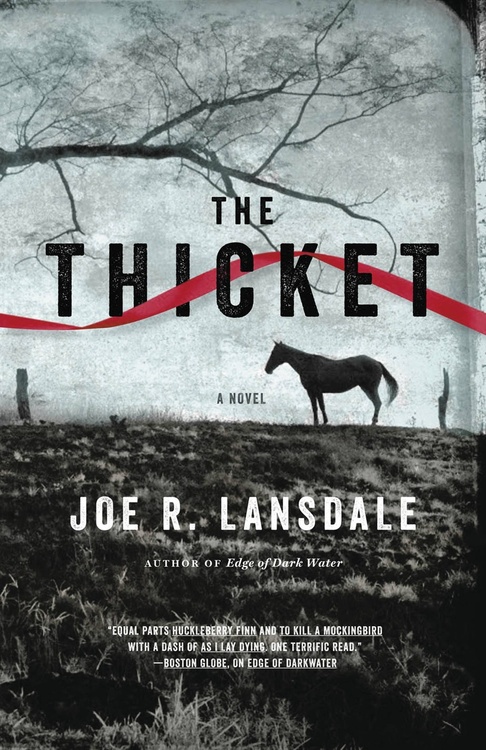
The Thicket by Joe R. Lansdale (Jon, Avondale)
From Booklist
*Starred Review* The Bard of East Texas is back, this time
with the turn-of-the-twentieth-century coming-of-age tale of 16-year-old Jack
Parker and his 14-year-old sister, Lula. Still shocked by the sudden deaths of
their parents from smallpox, they see their grandfather murdered by outlaws,
who then abduct Lula. The same outlaws have killed the sheriff Jack hopes will rescue
Lula, and Jack must turn to bounty hunters Eustace Cox and Shorty. Eustace is a
black man who carries a giant shotgun; his constant companion is a 600-pound
feral hog. Shorty is a dwarf with an attitude who was taught to shoot by Annie
Oakley.
Their bond is the discrimination they face, and they are willing to
chase the outlaws into the primordial and lawless deep woods of East Texas’ Big
Thicket. Lansdale’s premise seems borrowed in part from Charles Portis’ True
Grit. But anyone who knows Lansdale knows he will put his own spin on the
material. He has been writing brilliantly about East Texas for three decades
(in both historical fiction and his contemporary series starring Hap Collins and Leonard Pine), but never has the region appeared stranger or more violent
than it does here. The oil boom has begun, and Jack, a naive and pious farm
boy, is introduced to boom towns, brothels, lynchings, and all manner of new
things. Memorable characters, a vivid sense of place, and an impressive body
count make The Thicket another Lansdale treasure. --Thomas Gaughan

Far As the Eye Can See by Robert Bausch (Jon, Avondale)
As expansive as the country it traverses, Bausch's majestic
odyssey through the Old West finds rich nuance in a history often
oversimplified . . . The novel's patient, searching first-person narration is finely
balanced, with a voice at once straightforward and lyrical, grand and
particular. Bausch's characters defy facile judgments; each is sharply
distinctive, yet all struggle to find a footing amid the clash of human
difference that is, in Bobby Hale's words, the 'most spacious war of all.' (Publishers
Weekly)

The Midnight Plan of the Repo Man by W. Bruce Cameron (Jon,
Avondale)
“The Midnight Plan of the Repo Man introduces my
favorite kind of flawed cynical protagonist in Ruddy McCann, former football
star, now Repo Man in a small town full of memorable weirdos. It's suspenseful,
action-packed, romantic, and above all, truly funny. I loved it.”—Nelson
DeMille, New York Times bestselling author
GENERAL DISCUSSION:

True Grit by Charles Portis
Charles Portis has long been acclaimed as one of America's
foremost comic writers. True Grit is his most famous novel--first
published in 1968, and the basis for the movie of the same name starring John Wayne. It tells the story of Mattie Ross, who is just fourteen years of age
when a coward going by the name of Tom Chaney shoots her father down in Fort
Smith, Arkansas, and robs him of his life, his horse, and $150 in cash money.
Mattie leaves home to avenge her father's blood. With the one-eyed Rooster
Cogburn, the meanest available U.S. Marshal, by her side, Mattie pursues the
homicide into Indian Territory. True Grit is eccentric, cool, straight, and unflinching, like Mattie
herself. From a writer of true cult status, this is an American classic through
and through.

Blood Meridian by Cormac McCarthy
Amazon.com Review
"The men as they rode turned black in the sun from the
blood on their clothes and their faces and then paled slowly in the rising dust
until they assumed once more the color of the land through which they
passed." If what we call "horror" can be seen as including any
literature that has dark, horrific subject matter, then Blood Meridian is,
in this reviewer's estimation, the best horror novel ever written. It's a
perverse, picaresque Western about bounty hunters for Indian scalps near the
Texas-Mexico border in the 1850s--a ragged caravan of indiscriminate killers
led by an unforgettable human monster called "The Judge." Imagine the
imagery of Sam Peckinpah and Heironymus Bosch as written by William Faulkner,
and you'll have just an inkling of this novel's power. From the opening scenes
about a 14-year-old Tennessee boy who joins the band of hunters to the
extraordinary, mythic ending, this is an American classic about extreme
violence.

The Ploughmen by Kim Zupan (Jon, Avondale)
Stunning…A remarkable novel... It's almost hard to believe
that it's a debut…. It's a portrait of the West as a sometimes desolate and
cold place, full of possibility, maybe, but also full of danger from every
corner. It's a modern West, caught between the romance of the frontier and the
mundane, harsh realities of living in the present day United States. And it's
absolutely beautiful, from its tragic opening scene to its tough, necessary
end. Zupan is an unsparing writer, but also a generous, deeply compassionate
one. (NPR)
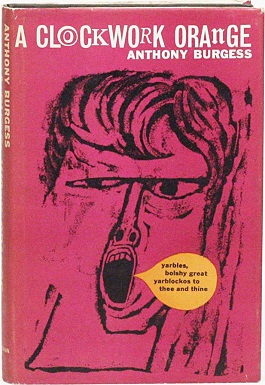
A Clockwork Orange by Anthony Burgess (Richard, BPL Central)
Alex, a teenager from a future Britain, loves to maim, kill,
rape and steal. Scarier than him is the government which wants to put him in an
experimental program that will turn him into a model citizen. This novel is tamer now than it was in the
early sixties when it came out, but it still wallops your imagination. Part of the reason it does is its language,
specifically Alex’s language Nadsat, a blend of standard English, Russian,
Gypsy usage and whole cloth Burgess inventions. It’s seductive, whether used to
describe beating someone up or Beethoven.
And it gives us a harrowing view of a human being who is, despite his
hideous faults, much more sympathetic than the chilling State.

Riddley Walker by Russell Hoban (Richard, BPL Central)
Post-apocalyptic
stories are hot now, and when we look back on our time, I’m sure very few will
ever equal this one. A nuclear war has long since devastated the world. A young
man, Riddley Walker, tries to makes sense of this world, a future Inland
(England) and the efforts of some to recreate a weapon from pre-war times.
Riddley speaks in an invented language, largely a phonetically-spelled
English. To understand it you need to
read slowly. Doing this will allow you to think as Riddley does, see the world
through his eyes. This is, despite what it sounds like, not a burden for the
reader but a bridge to a new way of reading, a new way of empathizing with a
protagonist. When experimental fiction works, as it does here, it can rewrite
the rules of the reader and the book. Riddley’s language is nothing less than
magical. Here he is trying to describe the transcendent Other: “Its some kind
of thing it aint us but yet its in us. Its looking out thru our eye hoals…It
aint you nor it don’t even know your name. Its in us lorn and loan and
sheltering how it can.” Our narrator lives in an Iron Age land that is beaten
down but may be slowly rising up. He is more than merely wise beyond his years.
He’s a future Huck who will unlock many things in us. You’ll probably be
entranced by him and this book which, through its use of irony and inheritance,
has much to say about our time and our spiritual poverty.

Station Eleven by Emily St. John Mandel (Jon, Avondale)
An Amazon
Best Book of the Month, September 2014: A flight from Russia lands in
middle America, its passengers carrying a virus that explodes “like a neutron
bomb over the surface of the earth.” In a blink, the world as we know it
collapses. “No more ballgames played under floodlights,” Emily St. John Mandel
writes in this smart and sober homage to life’s smaller pleasures, brutally
erased by an apocalypse. “No more trains running under the surface of cities
... No more cities ... No more Internet ... No more avatars.” Survivors become
scavengers, roaming the ravaged landscape or clustering in pocket settlements,
some of them welcoming, some dangerous. What’s touching about the world of Station
Eleven is its ode to what survived, in particular the music and plays
performed for wasteland communities by a roving Shakespeare troupe, the
Traveling Symphony, whose members form a wounded family of sorts. The story
shifts deftly between the fraught post-apocalyptic world and, twenty years
earlier, just before the apocalypse, the death of a famous actor, which has a
rippling effect across the decades. It’s heartbreaking to watch the troupe
strive for more than mere survival. At once terrible and tender, dark and
hopeful, Station Eleven is a tragically beautiful novel that both
mourns and mocks the things we cherish. –Neal Thompson

Death of a Liar by M.C. Beaton (Leigh, North Birmingham)
Sergeant Hamish Macbeth is alarmed to receive a report from
a woman in the small village of Cronish in the Scottish Highlands. She has been
brutally attacked and the criminal is on the loose. But upon further
investigation, Hamish discovers that she was lying about the crime. So when the
same woman calls him back about an intruder, he simply marvels at her
compulsion to lie. This time, though, she is telling the truth. Her body is
found in her home and Hamish must sort through all of her lies to solve the
crime.
What are YOU reading?

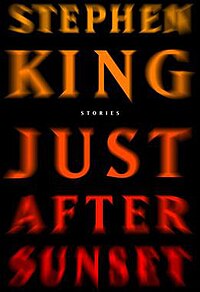

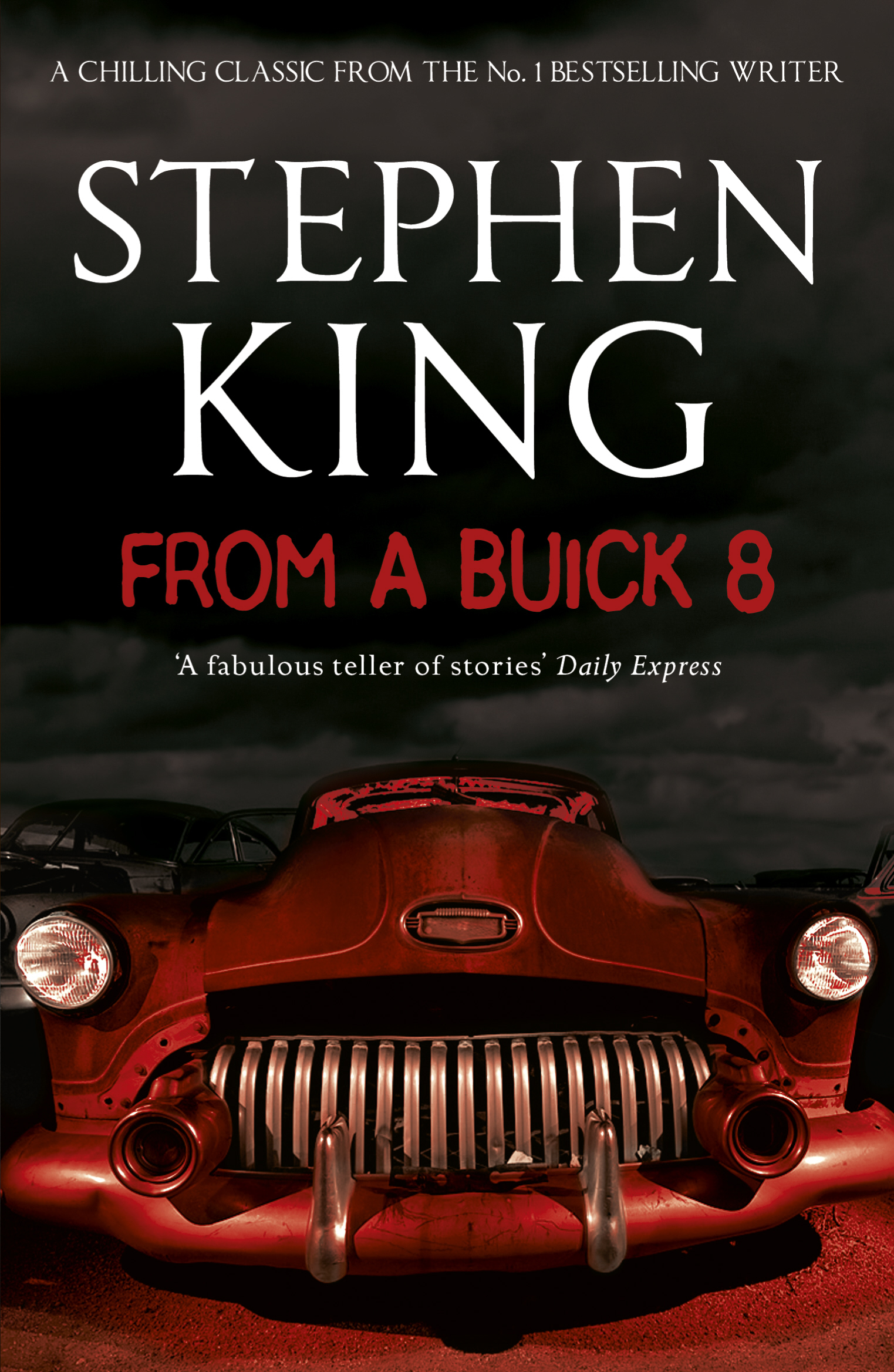
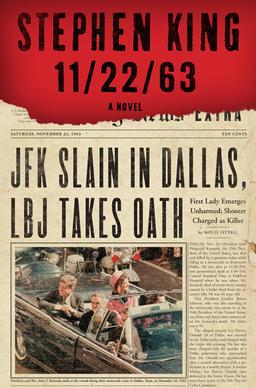
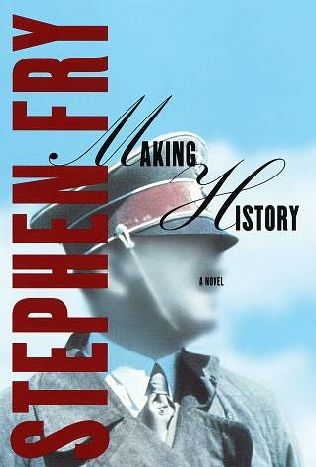


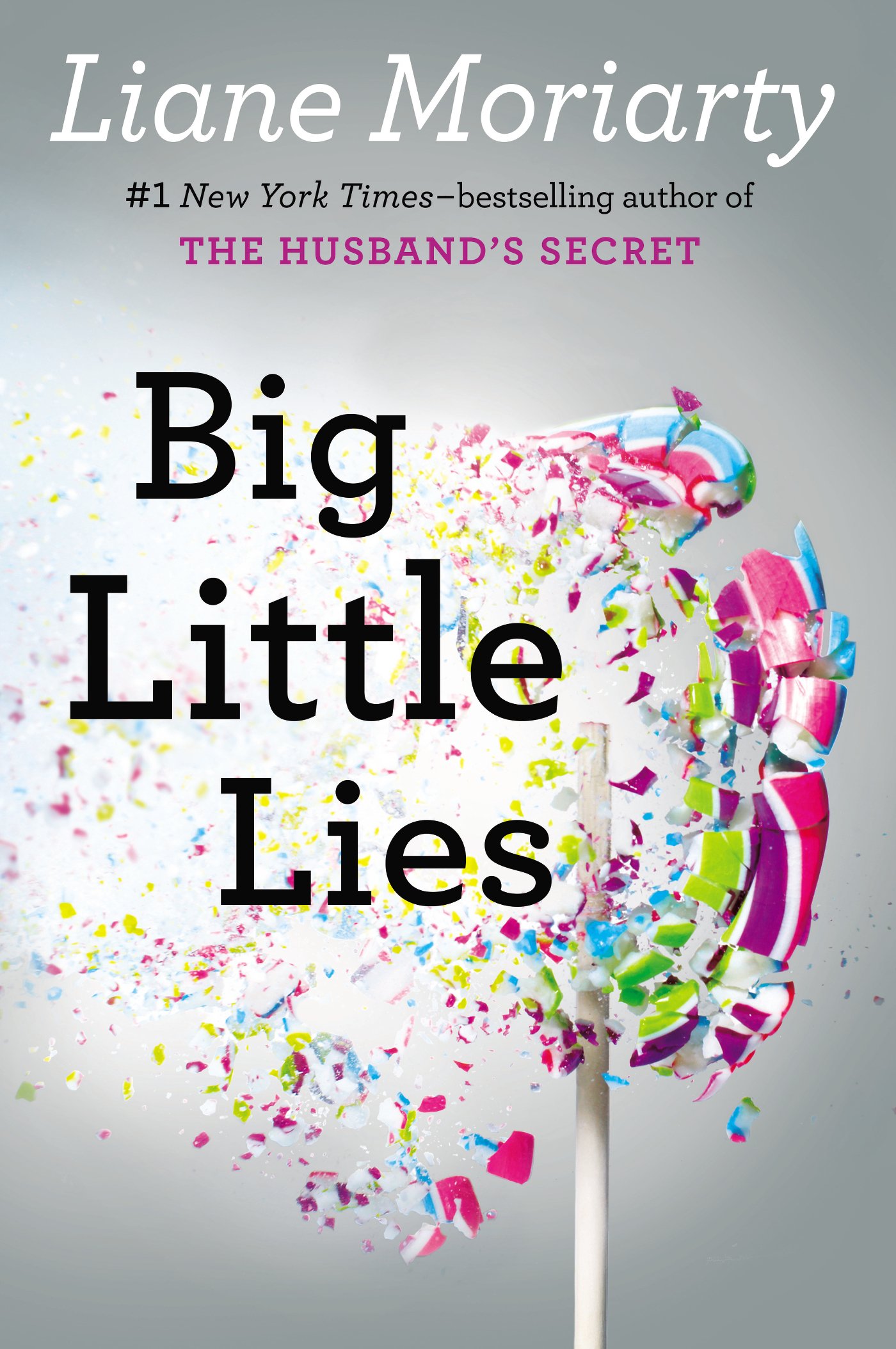

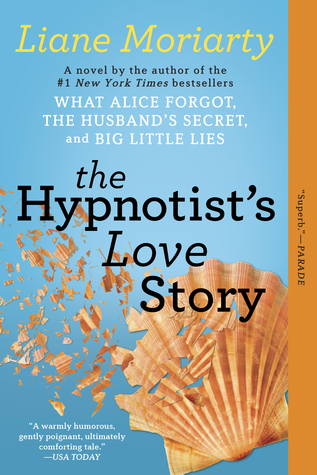
 \
\



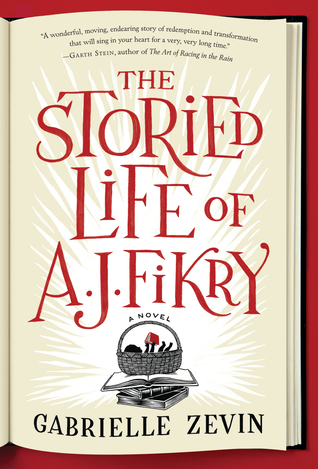


.jpg)












